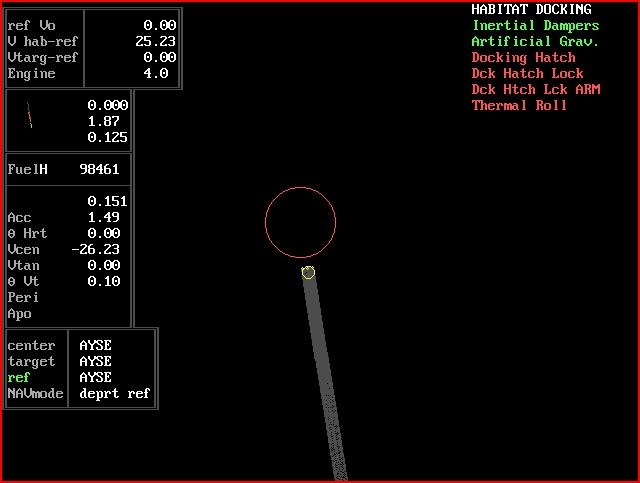Orbit
Orbit is a package of software developed by Admiral Dr. J. Magwood for use by the OCESS to simulate the workings of the habitat. It includes several components.
Contents
Components
This part of the software is used by the pilot to navigate within the solar system. For the sack of simplification, both of the software and of the piloting techniques, the universe is simulated as a two dimensional plane with most objects being perfect circles or a cluster of such. However, the program is based on real astronomical physics and simulates many functions of a real spaceship. It has received a major overhaul in 2006-07 to add the effects of radiation, atmosphere and fuel.
EECOM
The EECOM software monitor the environmental data for the habitat, and to controls most life support related operations as venting or pressurizing modules, scrubbing carbon dioxide, or adding oxygen. The Mission Control and the Habitat have two different extensions of the same software, but all the controls are carried out from the habitat unless emergence (beta) should arise.
Power Grid
The Power Grid Software was first added to the collection in 2006-07 for Coronis. The Power Grid software monitors reactor temperature and the status of various onboard circuits and modules. It also allows the Chief Engineer to control the activation of, amongst others, the radiation shielding, the generator itself, the propulsion systems and the communication systems.
Simulation Error Activation Utility
This is the extension of the software used by the simulators to simulate various possible system failures. Once a system failure is activated, then the Astronauts have to perform a series of repair actions before the simulator would then deactivate the system failure.
